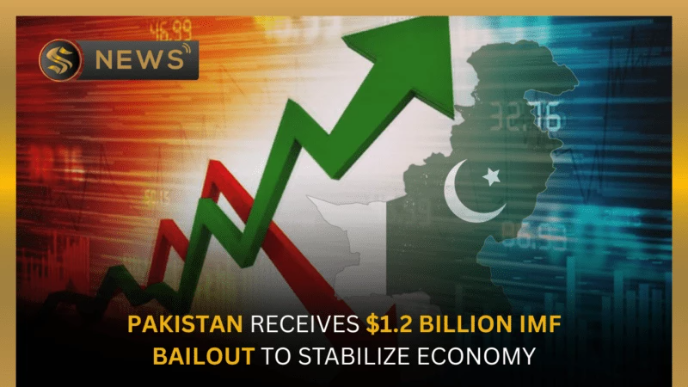
Share This Story, Choose Your Platform!
Pakistan’s Economic Quagmire – Challenges and Pathways to Sustainable Growth
Pakistan’s economy has been grappling with a familiar vicious cycle of debt and IMF bailouts, repeating a pattern that has plagued the country’s history. The recent IMF-approved bailout package of $3 billion has temporarily averted a debt default, but it is crucial to address the root causes of Pakistan’s fiscal instability to ensure long-term sustainable growth. This blog post addresses the Pakistani economy’s challenges and proposes solutions to break free from this cycle of dependency.
Political Variables and IMF Bailouts
The frequent reliance on IMF bailouts to address economic crises indicates a lack of long-term planning and commitment from successive governments. The usual practice of accepting and derailing an IMF program with populist measures before the next election only exacerbates the problem. This time, the unique political scenario, with three different regimes implementing the IMF program within nine months, highlights the need for a more unified approach to tackle economic challenges.
You May Also Read
Pakistan Receives $1.2 Billion IMF Bailout to Stabilize Economy
Military Hegemony and Governance Distrust
The dominance of the military in Pakistani politics has led to a lack of ownership of the economy by successive governments. The economic policies are often manipulated for political gains, leading to ineffective governance and distrust among the public. To achieve sustainable economic growth, Pakistan must establish a more transparent and accountable governance structure, where empirical evidence rather than political motives guide economic decisions.
Currency Exchange Rate and Forex Policy
Pakistan’s interference in forex rates and the politicization of the State Bank of Pakistan (SBP) have hindered economic stability. The artificial control of the exchange rate has caused damage to multiple sectors within the economy, resulting in a decline in foreign remittances and inadequate reserves. Empowering the SBP as an independent and autonomous institution will allow it to make objective decisions in setting monetary policies and managing inflation.
Informal Economy and Parallel Economies
Over a third of Pakistan’s economy remains undocumented, allowing for parallel economies to thrive, making macroeconomic indicators inadequate. The informal economy also serves the interests of a self-serving ruling elite, resulting in a diminished state exchequer and reduced spending on essential developmental work. Formalizing and regulating the informal sector will lead to a more robust economy with increased government revenue for public welfare.
Cartels and Agricultural Mismanagement
Successive governments have facilitated cartels that hoard staple food products, leading to record-breaking inflation and hardships for farmers and businesses. The mismanagement of agriculture, which should be the backbone of Pakistan’s economy, has resulted in decreased exports and increasing reliance on imports. Addressing agricultural issues and promoting export-oriented policies will help stabilize prices and boost economic growth.
Security and Investment Climate
The persistent security challenges in Pakistan deter foreign investors from engaging in the country’s economy despite a reduction in terror attacks. Ensuring stability in both the security and political realms is vital to attract foreign investments and boost trade. Improving trade ties with neighboring countries, including India, will open new economic growth and cooperation avenues.
Real Estate – A Key Driver for Economic Growth
Real estate has proven to be a resilient and prosperous industry, even amidst challenging economic conditions. In 2022, the real estate economy was valued at an impressive 1.5 trillion USD, and it is expected to witness further growth in 2023. This thriving industry holds immense potential to bolster the overall economy in various ways. Notably, apart from driving infrastructural development, it attracts foreign direct investment, fosters the creation of new businesses and job opportunities, and provides a reliable source of revenue through property taxes for the government. To fully harness these benefits, the government must implement effective measures that formalize and document the real estate business, ensuring the sector’s transparency, accountability, and sustainable growth.
Sapphire Builders & Associates is a unique real estate company, consistently delivering a remarkable 66.6% annual capital gain to its esteemed investors. Our unwavering commitment to client-centric policies and dedication to maximizing profit margins have garnered us a vast and satisfied clientele base. We have three projects under our name, i.e., Omega Mall, Opal Mall and Luxury Suites, and Oak Vista, each offering lucrative residential and business opportunities. Our investors get prosperous investment opportunities through these projects and generate steady revenue streams through rental incomes. With our track record of success and unwavering focus on delivering excellence, Sapphire Builders & Associates is the preferred choice for those seeking unparalleled real estate ventures.
Conclusion
Pakistan’s economic quagmire requires a structural revamp to break free from the IMF bailouts and debt cycle. Addressing political variables, empowering institutions, formalizing the informal economy, and implementing pro-growth policies in agriculture and trade are essential steps to achieve sustainable economic growth. The country’s future lies in embracing stability, transparency, and an economic vision driven by national interests and empirical evidence rather




